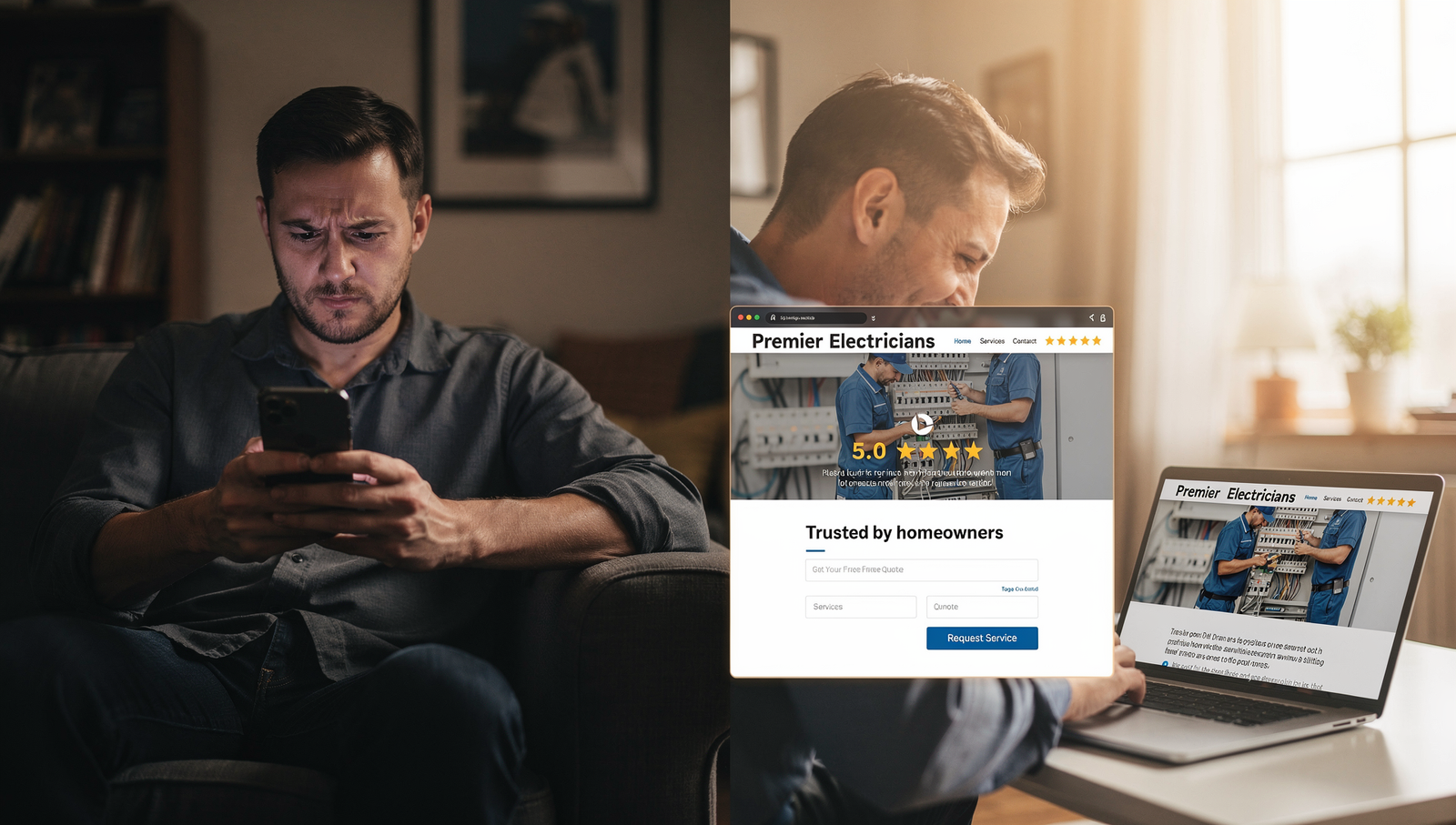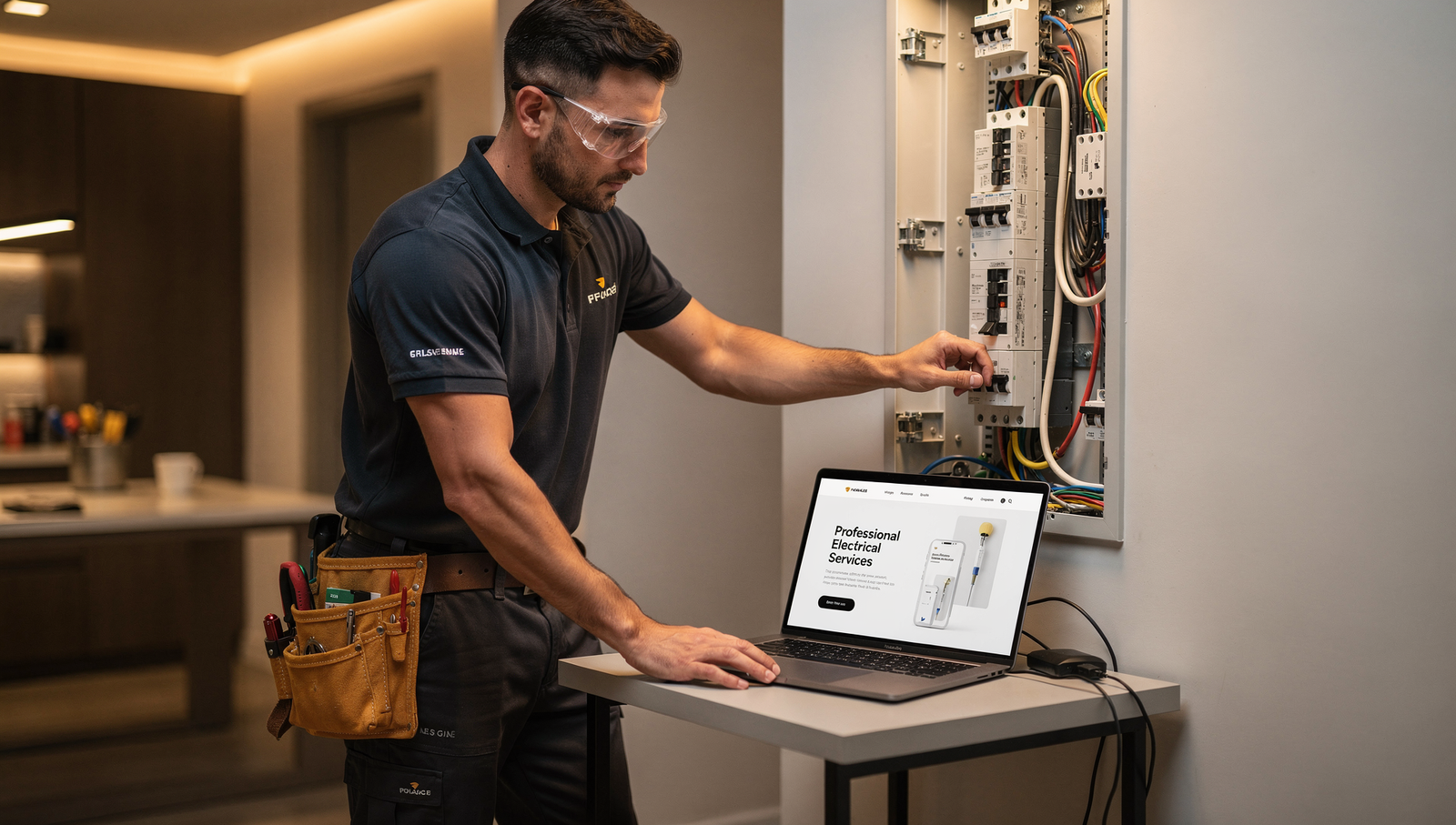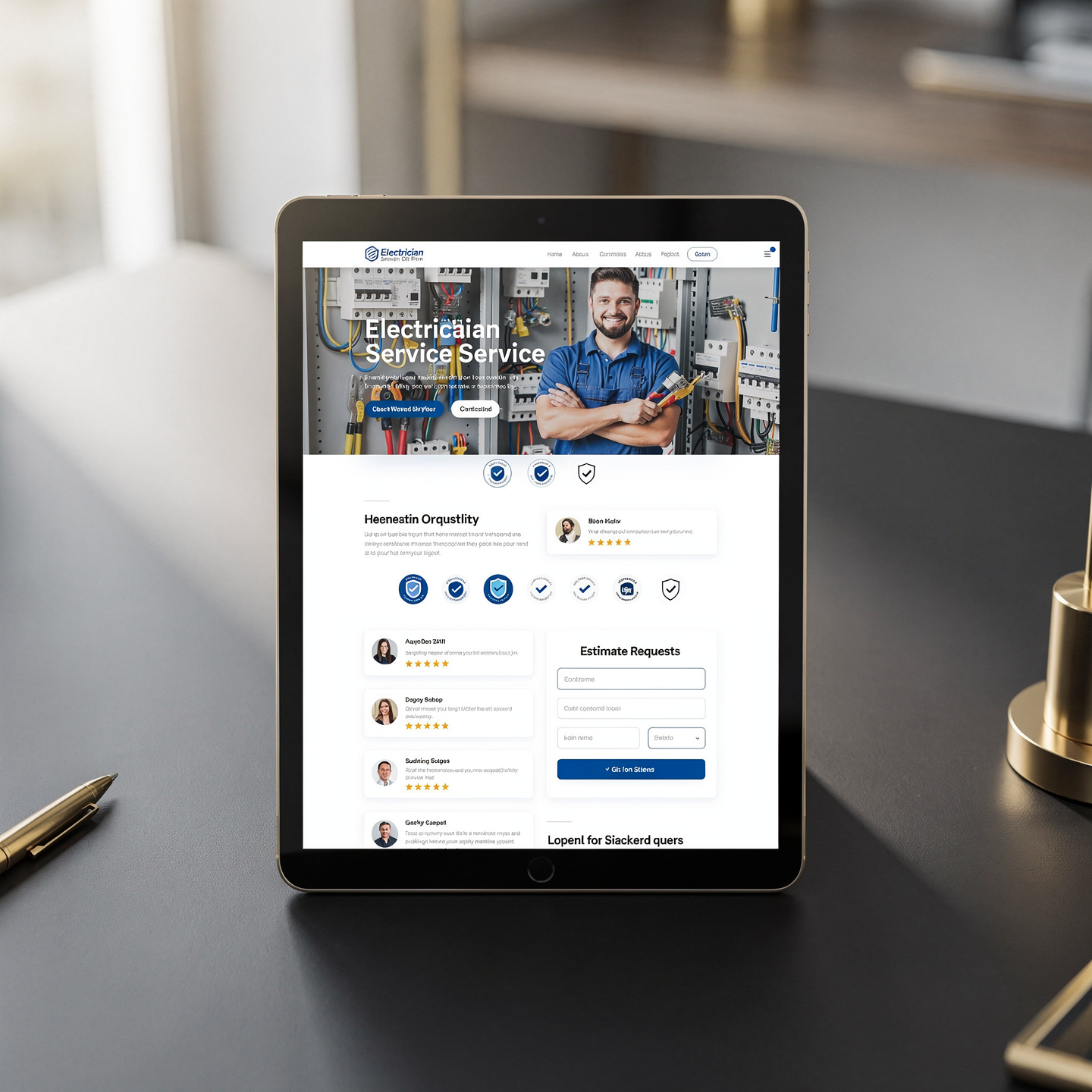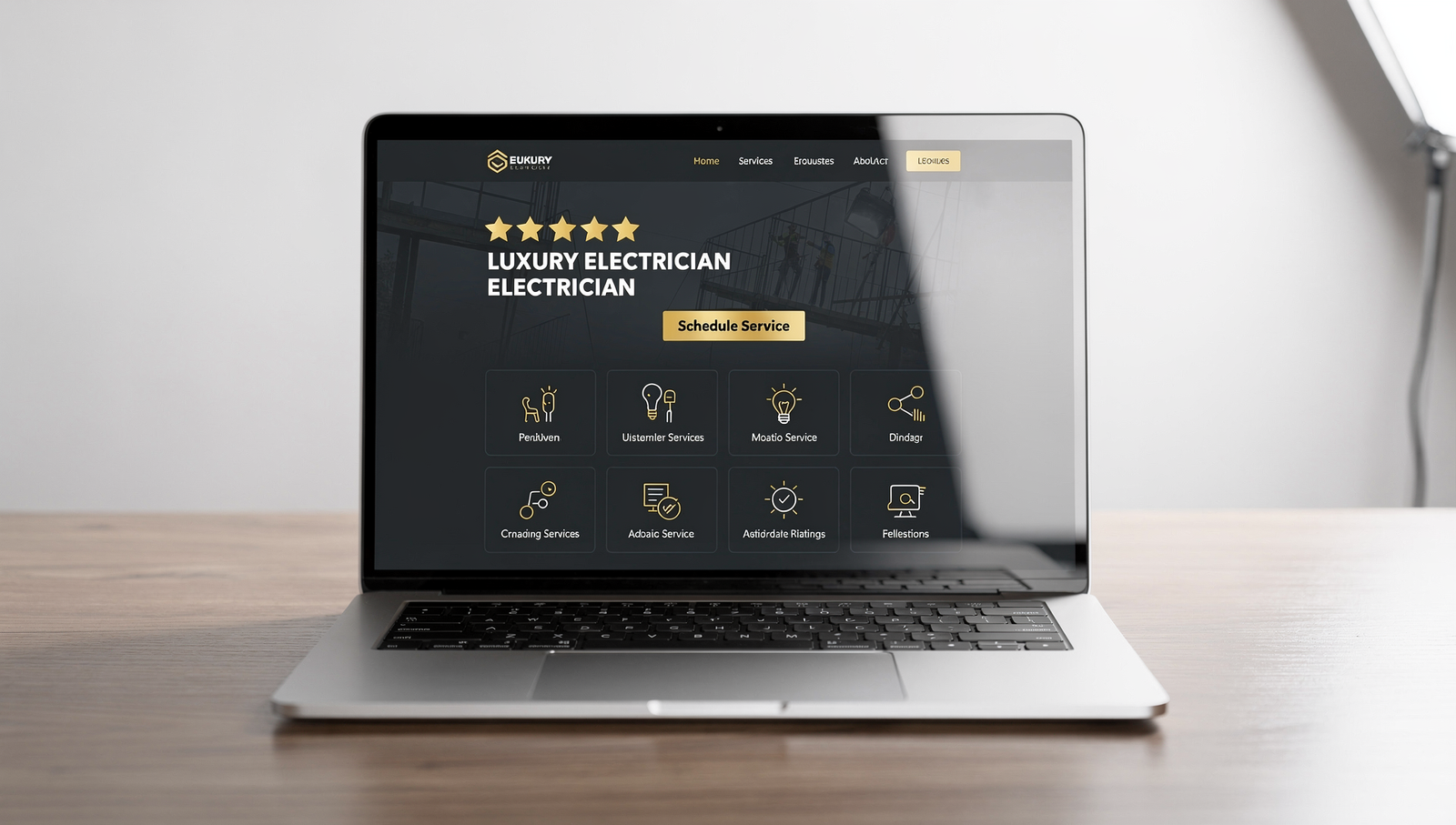7 Proven Ways Realtors Reduce Bounce Rate Fast
Watch the video to learn the exact strategies we use to reduce bounce rate on our realtor client websites
Want More Clients Fast?
Steal This Website Rescue Kit to Get More Clients, More Calls, and More Sales on Autopilot
If you’ve ever watched someone walk into an open house, glance around, and immediately leave, you already understand bounce rate. Online, it’s the same thing. A high bounce rate means people are clicking on your site and leaving almost instantly, which signals to Google that your website isn’t delivering value. That hurts your rankings and, worse, it costs you potential clients.
The good news? Improving bounce rate isn’t rocket science. With the right tweaks, you can transform your website from a digital revolving door into a place where visitors stick around, explore, and convert into clients. Let’s dig into the strategies that work best for real estate websites.
What Bounce Rate Really Means
Bounce rate is the percentage of visitors who land on your website and leave without clicking on anything else. A healthy bounce rate varies by industry, but for real estate websites you’ll want to aim for under 50 percent. Why so important? Because a lower bounce rate means visitors are finding what they came for, staying longer, and signaling to search engines that your site deserves to rank higher.
Think of it like hosting a showing. If everyone leaves after 30 seconds, they clearly didn’t see what they wanted. If they walk through the rooms, ask questions, and start picturing their furniture inside, you know you’ve captured their interest.
Improve Page Speed First
One of the biggest reasons people bounce is slow loading times. In fact, research shows that 53 percent of mobile users abandon a site that takes longer than three seconds to load. That’s brutal.
For realtors, this means compressing images, using next-gen formats like WebP, and making sure your hosting can handle traffic spikes. If your site loads faster than a property flyer printing off your office printer, you’re in good shape.
If you’re curious about website optimization beyond speed, check out our post on Best Free Tools for Realtors where we highlight free resources that can help you track and improve performance.
Make Your Content Instantly Valuable
When a visitor lands on your website, they’re asking: “Is this worth my time?” If they don’t see value immediately, they’re gone. This is where having clear, client-focused messaging and resources is key.
Examples of engaging content that lowers bounce rate include:
Market update pages with the latest trends in their neighborhood
Interactive tools like a home value estimator
Blog posts that answer burning questions like Real Estate SEO Best Practices or How to Attract High-End Sellers Online
The goal is to give visitors a reason to click, scroll, and engage. Remember, the longer they stay, the more likely they are to become a lead.
Optimize for Mobile Browsing
More than 80 percent of real estate traffic comes from mobile devices. If your site looks like a jumbled mess on a phone, users won’t stick around. They’ll hit back faster than you can say “closing costs.”
To fix this, make sure your site is responsive, meaning it adapts beautifully to every screen size. Buttons should be easy to tap, text should be legible without pinching, and property photos should look just as stunning on a phone as they do on a desktop.
Use Compelling Visuals Without Overloading
High-quality images and videos are non-negotiable for real estate websites. Listings with professional photos receive 118 percent more online views than those with amateur shots. But here’s the catch: too many large files slow your site and send bounce rates through the roof.
The sweet spot is striking a balance. Use crisp, properly sized images (see our full post on Best Image Sizes for Real Estate Websites) and short videos that highlight your properties without killing load times.

Improve Navigation and Layout
A confusing website is like a house with no floor plan. If visitors can’t find what they’re looking for, they’ll leave.
Your site should have:
A clean menu with clear categories like “Buy,” “Sell,” “About,” and “Contact”
Calls-to-action that are easy to find and consistent across pages
Internal links guiding readers to other valuable content, like our post on Real Estate Website Conversion Tips
The smoother the experience, the lower the bounce rate.
Build Trust Quickly
One overlooked reason for high bounce rates is lack of trust. If your site looks outdated, has no testimonials, or doesn’t show your face, visitors hesitate. People want to know who they’re dealing with, especially when it comes to the largest financial transaction of their lives.
Add trust signals like:
Professional headshots and bio pages
Client testimonials and reviews
Security icons and SSL certificates
Local market expertise with neighborhood pages
For a deeper dive, check out our blog on Real Estate Website Trust Signals.
Leverage Strong Calls-to-Action
Sometimes visitors bounce because they don’t know what to do next. A clear, persuasive call-to-action can guide them. Think beyond “Contact Me.” Use CTAs like:
“See what your home is worth today”
“Get instant access to the newest listings”
“Schedule a free consultation”
Calls-to-action reduce friction and encourage people to stay engaged with your site.
Use Analytics to Spot Problems
Google Analytics (or GA4) isn’t just a data dump, it’s your personal website detective. By reviewing your bounce rate by page, you can quickly identify which content keeps people hooked and which sends them running.
If a page has an 80 percent bounce rate, it’s like a listing that no one schedules a showing for. Time to refresh the photos, rewrite the description, or add something interactive to keep people interested. For setup tips, our blog on Google Analytics Setup for Realtors is a must-read.
Combine Bounce Rate Fixes with Smart Marketing
A low bounce rate is powerful, but it works even better when combined with strategic marketing. When you’re driving quality traffic from campaigns like Facebook Ads vs Google Ads, reducing bounce ensures those dollars actually turn into leads. Otherwise, you’re paying for clicks that vanish.
Final Thoughts and Next Steps
Improving bounce rate isn’t about tricking visitors, it’s about making your site so valuable and easy to use that people want to stay. From faster load times to better visuals, clear navigation, and strong calls-to-action, every improvement compounds.
If you’re serious about keeping leads on your site longer and turning them into clients, Digital Dream Homes can help. We build luxury real estate websites that are fast, SEO-friendly, and designed to keep visitors engaged from the moment they land.
📞 Ready to stop losing visitors and start converting them into closings? Book a free consultation with us today and let’s build you a website that keeps bounce rates low and results high.
Matt Pieczarka
Want a Free Website Audit?
Fill out your information below and we will send you a personal screen share video of tips on how to make your actual website better!
See How Many Closings You're Losing to Zillow!
Click Here to Use our Calculator to See How Many Clients Zillow is Taking From You Per Year!
Other Posts About Small Business Websites You Might Like…
- Small Business Website Design Tips for Small Business Owners
- How to Create a Professional Website for Your Small Business
- Common Small Business Website Mistakes That Are Costing You Customers
- Best Homepage Layout for Small Businesses
- Website Conversion Tips for Small Business: How to Make Your Website Convert Visitors into Clients
- How to Make Small Business Website Look Professional: Simple Design Tweaks That Boost Small Business Credibility
- Best Website Colors For Small Business Branding: How to Choose the Right Colors for Your Brand
- Why Small Business Websites Fail: Why Your Website Isn’t Bringing in Leads
- Mobile Friendly Website Tips For Small Business: Mobile Optimization Tips for Local Business Websites
- Contact Page Optimization for Small Business: How to Create a “Contact Us” Page That Actually Gets Results
- What is a Listicle and Why Your Website Needs One
9 Functional Medicine Website Designer Tips to Grow Faster
9 Functional Medicine Website Designer Tips to Grow Faster Watch the video to learn one psychological SEO trick to build more trust and get more leads from your website! Wan
7 Functional Medicine Website Design Moves That Get Patients
7 Functional Medicine Website Design Moves That Get Patients Watch the video to learn about the best layout to get more leads and patients guaranteed! Want More Clients Fast
11 Electrician Website Designers That Turn Clicks Into Calls
11 Electrician Website Designers That Turn Clicks Into Calls Watch the video to learn the best layout for best results! https://youtu.be/XaEbNPZxi0U?si=kT1Cru8S2SMJSPNx Want More C
11 Electrician Website Help Fixes That Turn Clicks Into Calls
11 Electrician Website Help Fixes That Turn Clicks Into Calls Watch the video to learn how to structure your website for the best return on investment! https://youtu.be/XaEbNPZxi0U
11 Electrician Web Design Company Questions to Ask
11 Electrician Web Design Company Questions to Ask Watch the video to learn the best website layout for the most lead conversions! https://youtu.be/XaEbNPZxi0U?si=SgxjOWdd7F6f4Mtg
13 Electrician Website Templates That Turn Clicks Into Paid Jobs
13 Electrician Website Templates That Turn Clicks Into Paid Jobs Watch the video to learn the best template layout for the best results! https://youtu.be/XaEbNPZxi0U?si=rGg1WlUWlmH
11 Electrician Website Services That Bring In More Calls
11 Electrician Website Services That Bring In More Calls Watch the video to learn the best website layout for the best results https://youtu.be/XaEbNPZxi0U?si=rGg1WlUWlmHTg73v Want
12 Electrician Website Upgrades That Win More Jobs
12 Electrician Website Upgrades That Win More Jobs Watch the video to learn the best website layout to get the most bang for your buck! https://youtu.be/XaEbNPZxi0U?si=uFqsnSFvenQ1
5 Electrician Website Design Company Upgrades That Win Jobs
5 Electrician Website Design Company Upgrades That Win Jobs Electrician website design that earns trust fast and drives more calls. See the must-have upgrades and book more jobs. h









